Understanding the Fundamentals of SEO for Success


SEO shapes how people find just about everything online today. Almost two out of every three web visits start with a search engine, which means your site can easily get lost without the right SEO moves. Most people think it is all about keywords and rankings, but the real impact goes much deeper and touches every part of your brand’s relationship with customers.
Table of Contents
- What Is Seo And Why Is It Important?
- Key Components Of Search Engine Optimization
- Understanding How Search Engines Work
- The Role Of Keywords In Seo
- Seo Best Practices For Small Businesses
Quick Summary
| Takeaway | Explanation |
|---|---|
| SEO boosts website visibility | SEO enhances how easily a website can be found by users searching for relevant information online. |
| Content quality drives SEO success | High-quality and original content that meets user intent is crucial for effective SEO performance. |
| Keywords connect users to content | Proper keyword selection aligns with user searches, helping improve a webpage's ranking in search engines. |
| Technical aspects affect rankings | A well-structured website with fast loading speeds and security measures is essential for optimal SEO. |
| Local optimization benefits small businesses | Targeting local keywords and creating location-specific content can significantly improve search rankings for small businesses. |
What is SEO and Why is it Important?
Search engine optimization (SEO) represents a strategic approach to improving website visibility and attracting organic traffic through deliberate content and technical enhancements. At its core, SEO transforms how businesses connect with potential customers by making their online content more discoverable and appealing to search engines like Google.
Understanding the SEO Mechanism
Search engines utilize complex algorithms to evaluate and rank web pages based on multiple factors. These algorithms analyze elements such as content relevance, website structure, user experience, and external references to determine a page's credibility and positioning in search results. Research from the U.S. Department of Energy confirms that more than 60% of web traffic comes from search engine referrals, highlighting SEO's critical role in digital visibility.
Key Benefits of SEO
SEO provides substantial advantages for businesses seeking to establish a robust online presence. Strategic optimization helps websites:
- Increase organic visibility without paying for advertising
- Build credibility and trust with potential customers
- Improve user experience through structured, high-quality content
- Generate targeted traffic from users actively seeking specific information
Moreover, SEO is not just about search rankings but creating meaningful connections with your audience. By understanding user intent and delivering valuable content, businesses can transform their online strategy. Learn more about our comprehensive SEO approach to elevate your digital marketing efforts and unlock sustainable growth opportunities.
Key Components of Search Engine Optimization
Search engine optimization comprises several interconnected technical and strategic elements that work together to enhance a website's visibility and performance in search results. By understanding and implementing these critical components, businesses can develop a robust digital presence that attracts and engages target audiences.
The following table summarizes the three main components of effective SEO discussed in the article, highlighting their key focus and the impact they deliver.
| SEO Component | Main Focus | Impact on Website Success |
|---|---|---|
| Technical Website Infrastructure | Site structure, speed, mobile-friendliness, and security | Enables efficient crawling, boosts usability |
| Content and Keyword Strategy | High-quality content, strategic keyword integration, updates | Improves relevance, attracts targeted traffic |
| External Signals and Authority Building | Backlinks, social engagement, online reputation | Builds site credibility, raises rankings |
Technical Website Infrastructure
Technical optimization forms the foundation of effective SEO strategy. Search engines prioritize websites with clean, efficient structures that provide seamless user experiences. This involves ensuring fast page loading speeds, mobile responsiveness, secure connections (HTTPS), and clear website architecture. Research from Carnegie Mellon University emphasizes the importance of creating accessible, well-structured websites that help search engines efficiently categorize and rank content.
Content and Keyword Strategy
Content remains the primary driver of SEO performance. Successful optimization requires:
- Creating high-quality, original content that addresses user intent
- Strategically incorporating relevant keywords without overstuffing
- Developing comprehensive, authoritative content that provides genuine value
- Maintaining consistent content updates and relevance
Keywords act as critical signals that help search engines understand a webpage's context and purpose. By carefully selecting and integrating appropriate keywords, websites can improve their chances of matching user search queries.
External Signals and Authority Building
Search engines evaluate websites not just through internal content but also through external validation. Backlinks from reputable websites, social media engagement, and overall online reputation contribute significantly to a site's perceived authority. Learn more about advanced SEO tactics to understand how these external signals can dramatically improve your search rankings and digital visibility.
Understanding How Search Engines Work
Search engines function as sophisticated digital ecosystems that transform complex web information into easily accessible results for users. These intricate systems employ advanced algorithms and multiple technological processes to crawl, index, and rank billions of web pages in milliseconds.
Crawling and Indexing Mechanisms
Web crawlers, also known as search engine spiders, systematically browse the internet to discover and analyze web content. These automated programs navigate through websites by following hyperlinks, collecting data about each page's structure, content, and relevance.
Research from Digital.gov highlights the importance of clear HTML structuring and metadata to help search engines efficiently understand and categorize web content.The indexing process involves storing and organizing the collected information in massive digital databases. Key indexing components include:
- Analyzing page content and keywords
- Evaluating website structure and metadata
- Identifying unique page attributes
- Mapping relationships between different web pages

Ranking and Relevance Algorithms
Once websites are indexed, search engines employ complex ranking algorithms to determine the most relevant results for user queries. These algorithms consider hundreds of factors to assess a webpage's quality, authority, and usefulness. Factors like content relevance, user engagement, website speed, and external links all contribute to a page's search ranking.
Modern search engines continuously refine their algorithms to provide more accurate and personalized results. Learn more about search engine dynamics to understand the intricate mechanisms that power digital information discovery and how businesses can optimize their online presence.
The Role of Keywords in SEO
Keywords serve as the fundamental communication bridge between user search queries and website content, acting as critical signals that help search engines understand and match relevant web pages. These strategic terms represent the core language that connects user intent with digital content, making them essential for effective search engine optimization.
Understanding Keyword Fundamentals
Keyword selection is a nuanced process that goes beyond simply choosing popular terms. Effective keyword strategy involves understanding user search behavior, intent, and the specific language used across different audience segments. Research from the U.S. Department of Energy emphasizes the importance of naturally incorporating keywords into page content, avoiding artificial stuffing while maintaining contextual relevance.
Strategic keyword characteristics include:
- Alignment with user search intent
- Relevance to your specific content
- Appropriate search volume
- Manageable competition levels
- Natural integration within content
Keyword Types and Implementation
Keywords are typically categorized into three primary types: broad keywords, long-tail keywords, and semantic variations. Broad keywords represent general search terms with high competition, while long-tail keywords are more specific phrases that target niche audience segments. Semantic variations help capture related search intentions, providing a more comprehensive approach to content optimization.
This table compares the three primary types of keywords explained in the article, outlining their characteristics and advantages for SEO strategy.
| Keyword Type | Characteristics | Typical SEO Advantage |
|---|---|---|
| Broad Keywords | General search terms, high competition | Higher visibility, wider reach |
| Long-tail Keywords | Specific phrases, lower competition, niche focus | Targeted audience, higher conversion |
| Semantic Variations | Related terms, context-based search intent coverage | Broader relevance, improved user matching |
Successful keyword implementation requires a holistic approach that considers not just placement, but also the surrounding context and overall content quality. Learn more about advanced keyword research strategies to unlock the full potential of your SEO efforts and connect more effectively with your target audience.
SEO Best Practices for Small Businesses
Small businesses face unique challenges in digital marketing, with limited resources and competitive landscapes demanding strategic and efficient SEO approaches. Implementing targeted optimization strategies can level the playing field, allowing smaller organizations to compete effectively against larger competitors in online visibility and audience engagement.
Cost-Effective SEO Strategies
Strategic SEO for small businesses requires a focused approach that maximizes impact while minimizing resource expenditure. The key is identifying high-value, low-competition opportunities that deliver meaningful results. Research from digital marketing experts suggests that small businesses can achieve significant online visibility through smart, targeted optimization techniques.
Critical focus areas for small business SEO include:
- Targeting local and niche-specific keywords
- Creating high-quality, relevant content
- Developing a strong Google My Business profile
- Building genuine, authoritative backlinks
- Optimizing website performance and mobile responsiveness
Content and Local Optimization
Local search optimization represents a powerful strategy for small businesses targeting specific geographic markets. By concentrating on location-based keywords, creating locally relevant content, and maintaining consistent business information across online platforms, small businesses can significantly improve their search engine rankings.
Understanding that SEO is an ongoing process rather than a one-time task is crucial for long-term success. Explore proven SEO strategies tailored for small businesses to develop a comprehensive approach that grows with your business and adapts to changing digital landscapes.

Transform Your SEO Success with Automated Growth
You have just learned how crucial it is to master technical optimization, keyword strategy, and high-quality content if you want to compete online. But finding the time and resources to keep your SEO effective can feel overwhelming, especially for business owners and marketers who want sustainable results without complicated tools or the high costs of agencies. What if there was a simpler way to put your SEO efforts on autopilot and see real growth?
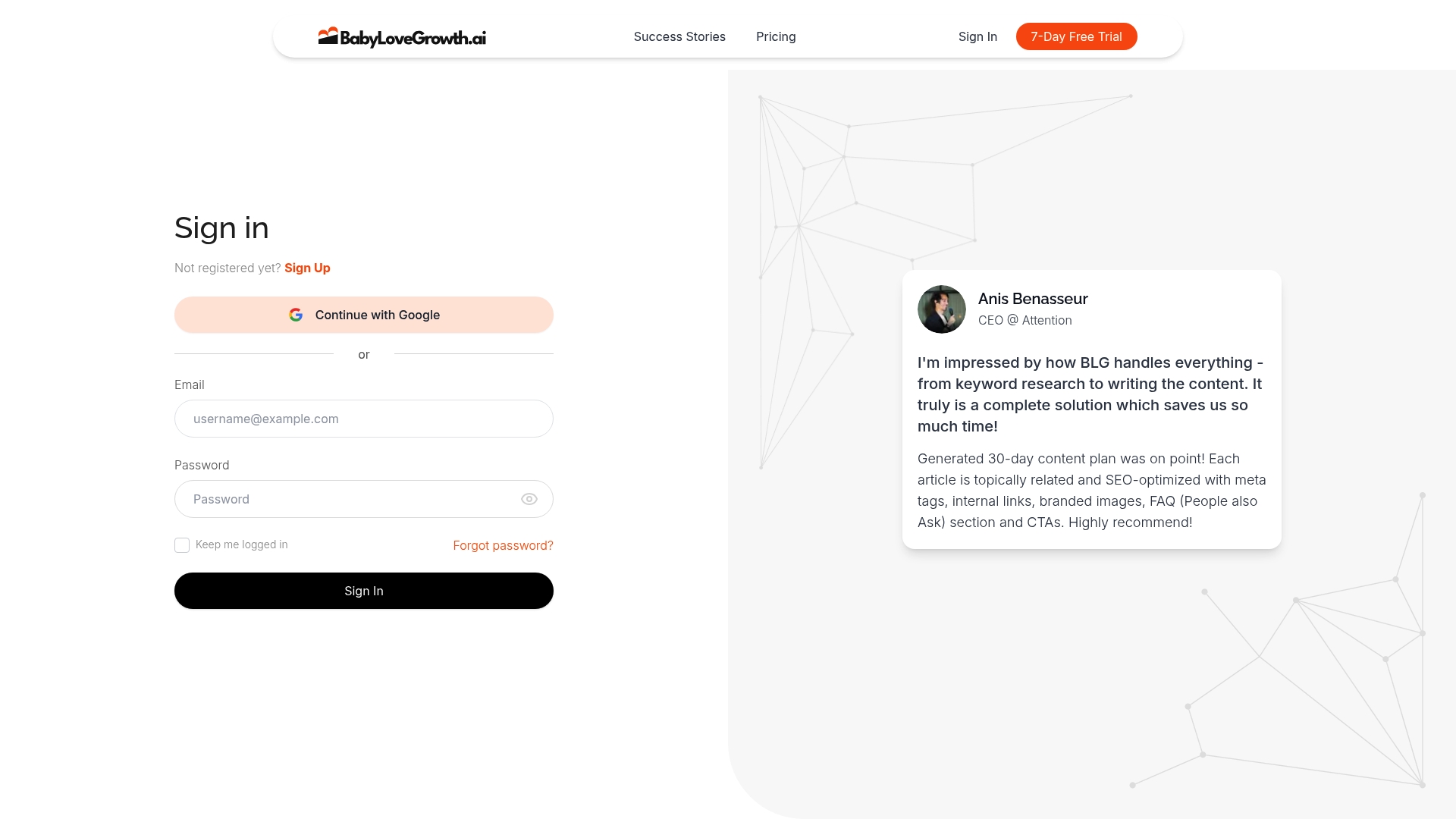
Let Babylovegrowth.ai turn your new SEO knowledge into business wins. Our platform combines AI-driven content, automated backlink strategies, and personalized 30-day SEO plans so you stop struggling and start ranking higher on Google and ChatGPT. See how our step-by-step method for SEO on autopilot brings you scalable organic growth, and join our free trial today to unlock growth opportunities right away. Ready to leave manual SEO behind? Visit Babylovegrowth.ai now and get started with your first AI-powered SEO plan.
Frequently Asked Questions
What is SEO and why is it important for my business?
Search engine optimization (SEO) is a strategic approach aimed at improving your website's visibility in search engine results. It is crucial because it helps attract organic traffic, build credibility, and enhance user experience, ultimately leading to increased conversions.
How do search engines determine the ranking of web pages?
Search engines use complex algorithms that evaluate various factors such as content relevance, website structure, and user engagement. They also analyze external signals like backlinks to determine a page's authority and its ranking in search results.
What are the key components of an effective SEO strategy?
A successful SEO strategy includes technical optimization (such as website structure and loading speeds), content creation focused on user intent and relevant keywords, and authority building through backlinks and social media engagement.
How can small businesses effectively implement SEO?
Small businesses can implement effective SEO by targeting local and niche-specific keywords, creating high-quality content, optimizing their Google My Business profile, and ensuring their website is mobile-friendly. Consistent efforts in these areas can significantly improve online visibility.
Recommended
Smart SEO,
Faster Growth!
Most Read Articles
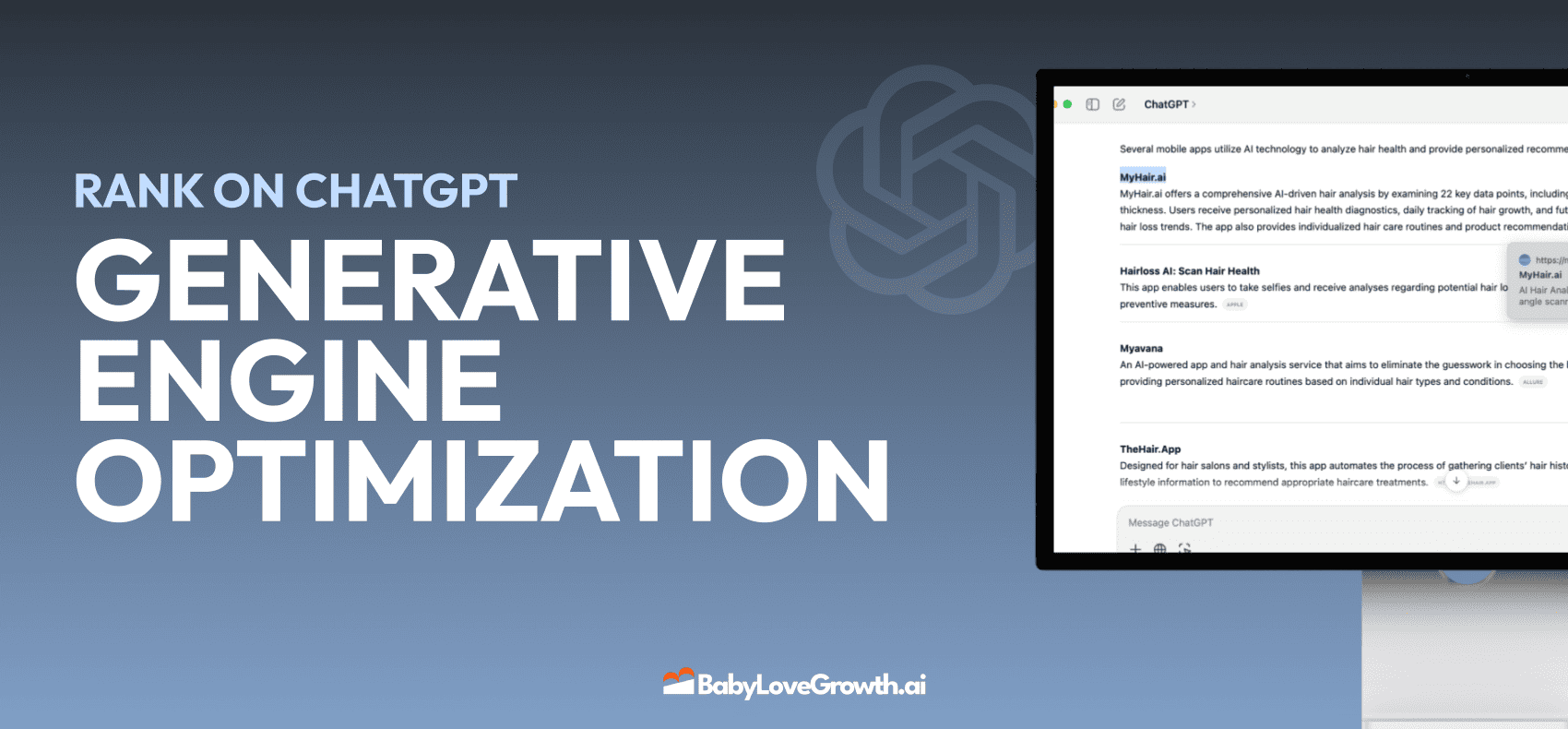
Generative Engine Optimization (GEO)
Learn how Generative Engine Optimization (GEO) helps your content rank in AI search engines like ChatGPT and Google AI. This comprehensive guide explains the differences between SEO and GEO, why it matters for your business, and practical steps to implement GEO strategies for better visibility in AI-generated responses.
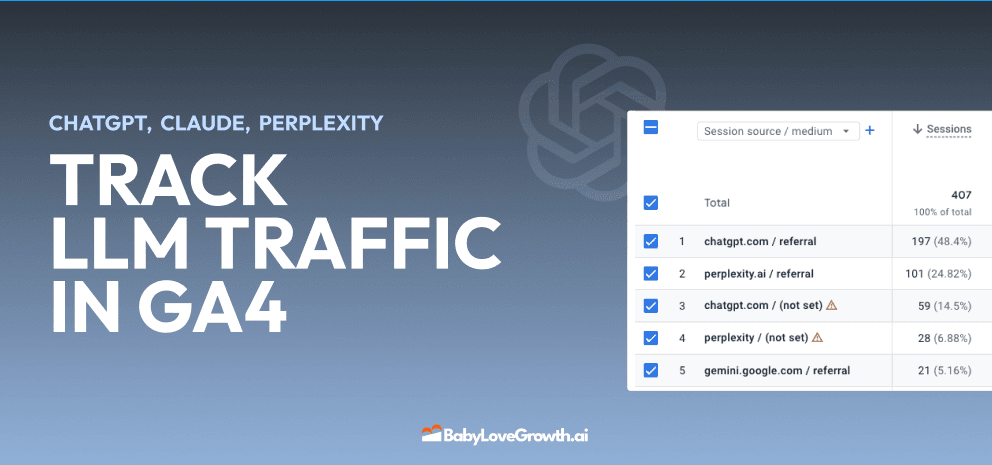
Track LLM Traffic in Google Analytics 4 (GA4)
Learn how to track and analyze traffic from AI sources like ChatGPT, Claude, Perplexity, and Google Gemini in Google Analytics 4. This step-by-step guide shows you how to set up custom filters to monitor AI-driven traffic and make data-driven decisions for your content strategy.
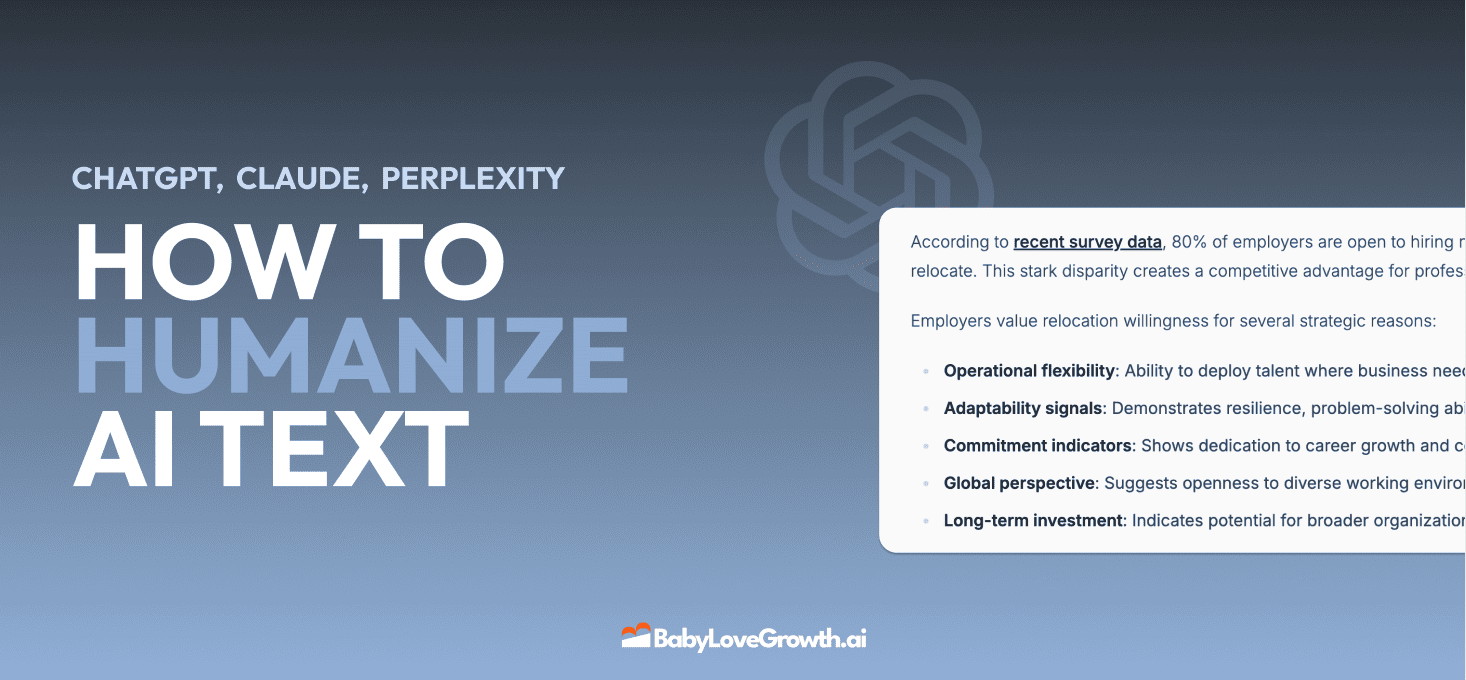
How to Humanize AI Text with Instructions
Learn practical techniques to make AI-generated content sound more natural and human. This guide covers active voice, direct addressing, concise writing, and other proven strategies to transform robotic text into engaging content.
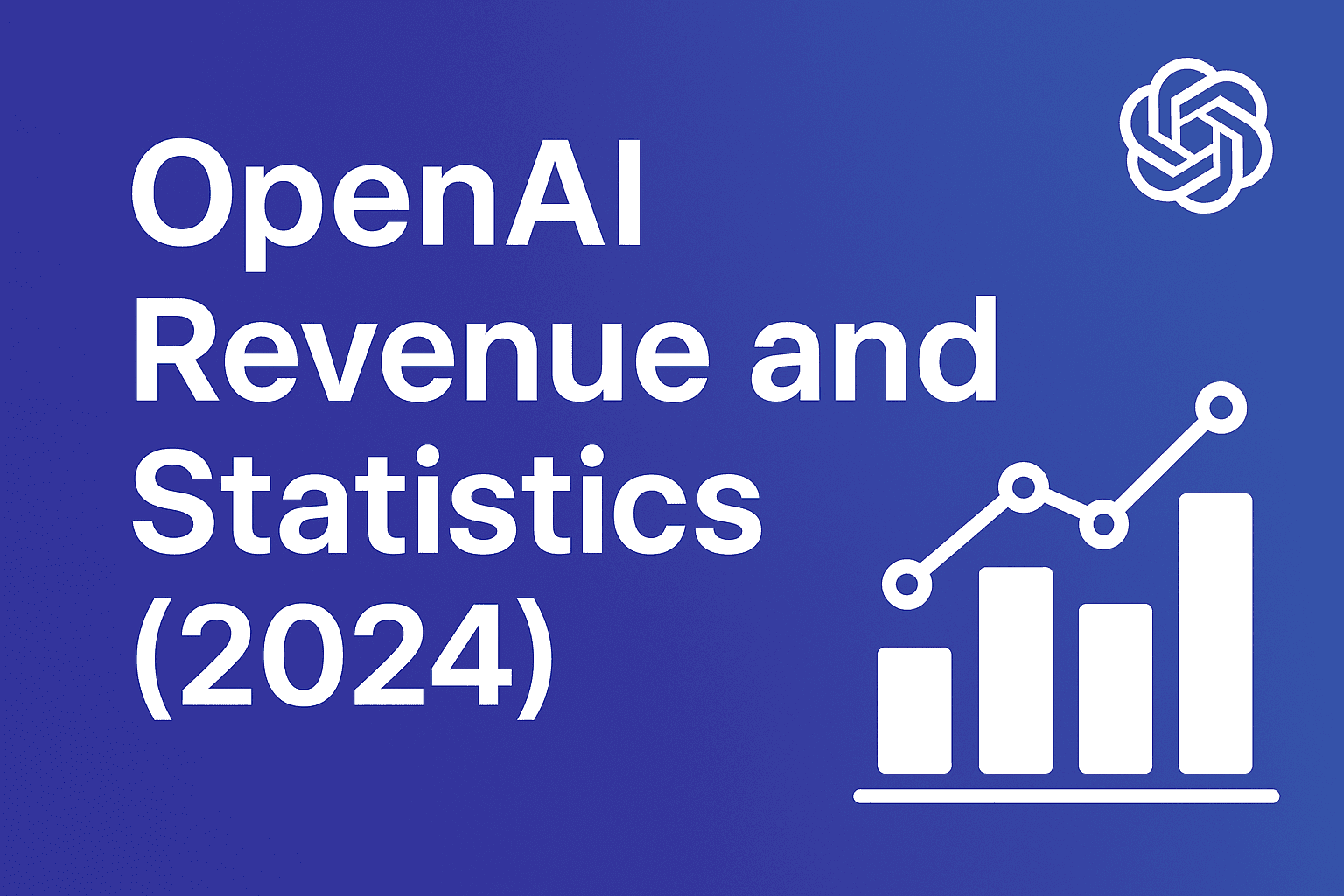
Open AI Revenue and Statistics (2024)
Comprehensive analysis of OpenAI financial performance, user engagement, and market position in 2023. Discover key statistics including $20B valuation, $1B projected revenue, and 100M+ monthly active users.